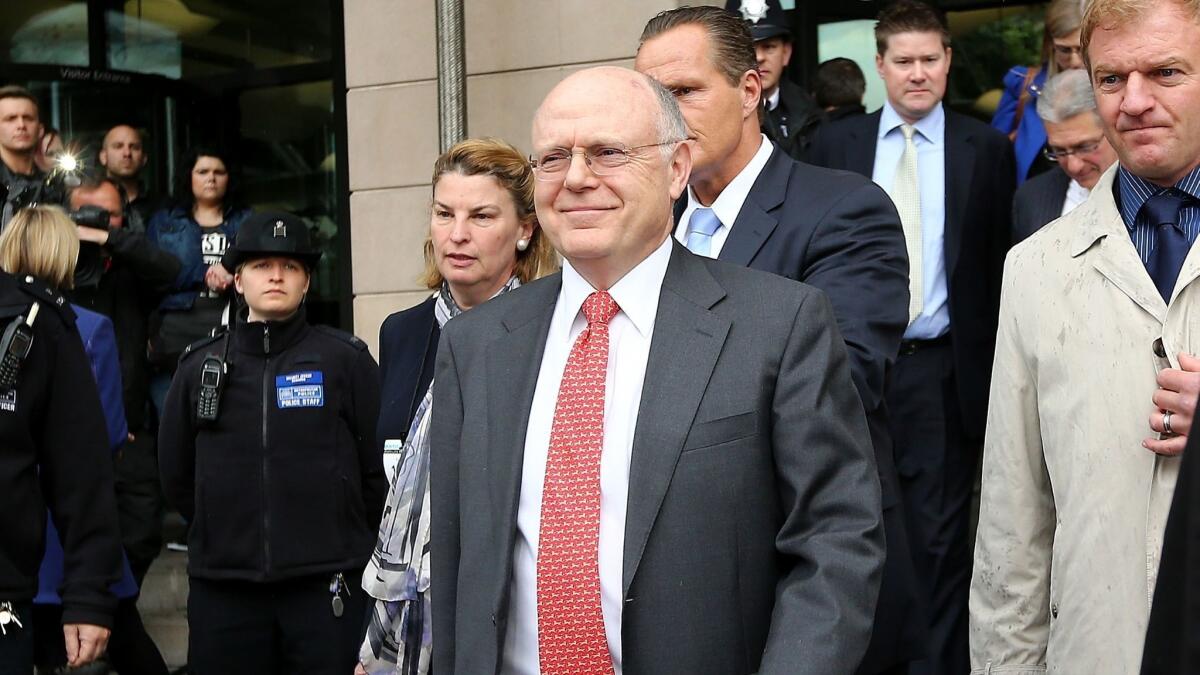Pfizer buckles under pressure from Trump, delays drug price increases

- Share via
Pfizer Chief Executive Ian Read said late Tuesday that his company would delay increasing the prices on dozens of drug products after President Trump publicly berated the firm one day earlier.
The company, in a statement, said the price increases would effectively be postponed at least until the beginning of 2019 in order “to give the president an opportunity to work on his blueprint to strengthen the healthcare system and provide more access to patients.”
The announcement marked a successful use of the bully pulpit for Trump and a relatively rapid concession by one of the country’s largest companies. Pfizer moved on July 1 to raise the prices on 41 drug products. Trump, on Monday, tweeted said the company should be “ashamed” and vowed an unspecified response.
Trump’s threat does not appear to have substantially affected Pfizer’s stock price, but the firm could have decided it was unwise to risk becoming a punching bag for Trump. The president has previously accused the pharmaceutical industry of “getting away with murder” and floated the idea of pushing down drug prices through a government-arranged bidding process. He backed down from that threat in May, but he retains the option.
Trump on Tuesday praised Read for his decision to delay the price increases.
Pfizer on Monday defended the price increases, saying they would not lead to a net increase in prices for consumers. But by Tuesday, the company’s position changed, as it opted to scrap the increases until at least next year.
Trump in May released a 44-page document that contained a list of ideas to lower drug prices, but it did not contain any concrete actions that the White House would pursue. Still, Trump predicted it would lead, within weeks, to a major reduction in drug prices. Prices were not reduced.
Trump hasn’t detailed how precisely he planned to proceed.
Pfizer’s immediate decision was much different from the approach Harley-Davidson took recently. The motorcycle manufacturer also drew attacks from Trump by moving forward with a policy that ran afoul of his agenda, announcing it would move some jobs outside the U.S. in order to produce more motorcycles abroad and avoid tariffs on its exports to Europe. Trump threatened to hit Harley with severe taxes and help its rivals, but the firm so far has not wavered in its plan.
More to Read
Inside the business of entertainment
The Wide Shot brings you news, analysis and insights on everything from streaming wars to production — and what it all means for the future.
You may occasionally receive promotional content from the Los Angeles Times.










